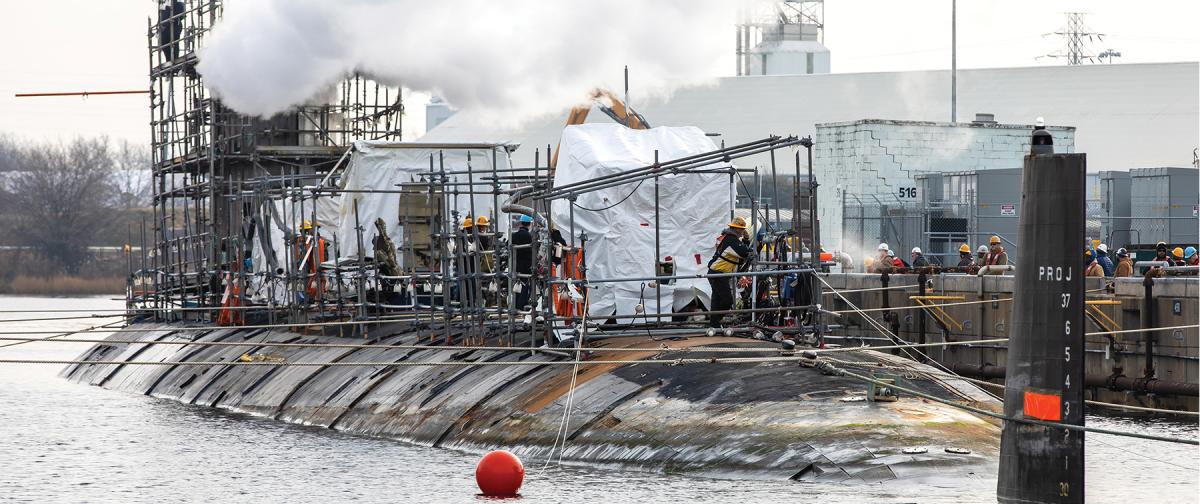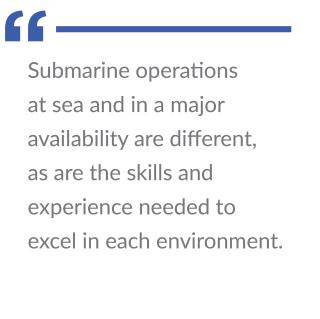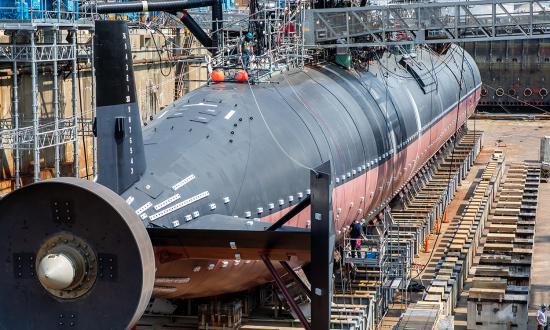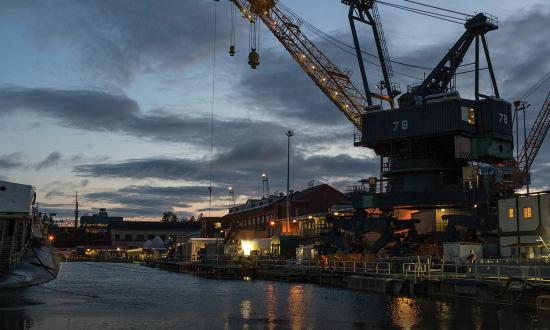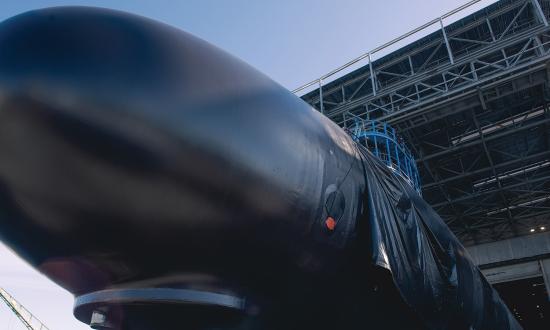Officer manning on board submarines during maintenance availabilities is nearly identical to that on board operational boats. This is problematic for the submarine and suboptimal for the enterprise. To more appropriately staff shipyard submarines, the Navy should create a limited duty officer (LDO) designator with an exclusively shipyard career path. These officers would spend their careers in one geographic area transitioning between submarines in availabilities and the supporting shore facilities.
The submarine LDO designator 623X (engineering/repair) could be refined by changing the eligibility requirements and career progression. Key to retaining talent within this designator would be ensuring applicants had firsthand experience with day-to-day operations in a shipyard. Accordingly, to be eligible, candidates would have to have stood watch as a qualified engineering duty petty officer in a major availability for at least six months.
The new career progression would include shipboard assignments as follows: division officer, assistant engineer or availability coordinator, forward department head (navigation/weapons officer), and executive officer. Shore duties would be at maintenance activities and on type commander staffs, keeping the officers integral to repair programs and close to submarine shipyard practices. Candidates would know they are likely to remain in the same geographic area and have few underway periods for the remainder of their service.
If this designator were incorporated in a new manning model, each submarine in a major availability would have two junior officer 623X LDOs, two second-tour 623X LDOs to serve as availability coordinator and assistant engineer, one third-tour 623X LDO as a forward department head (the other forward department head would be an 1120), and one fourth-tour 623X as executive officer. These LDOs would displace their 1120 equivalents in the current wardroom manning plan.
The primary benefit of this new manning model would be providing the submarine with several officers who have in-depth knowledge of the shipyard’s systems and practices and firsthand experience with the planning and execution required in each phase of an availability. The existing practice of having a single fleet nuclear-power LDO (620X designator) as availability coordinator is insufficient. Frustratingly, following their availability coordinator tour, the vast majority of 620Xs go to an aircraft carrier and never apply their expertise in the submarine community. Conversely, 623Xs would remain in the community and apply their knowledge and experience to help submarines complete availabilities safely and efficiently.
A second benefit would be an opportunity for better career/personnel matching. It is difficult for prospective submarine officers to sample submarine life to the extent necessary to determine whether it is a fit, but enlisted commissioning programs offer an excellent way to select officers who have had an opportunity to work in the community and are willing to make a career-long commitment. A small number of these submariners would have the opportunity to stay in a sector they have experienced and in which they have chosen to make their career.
623X LDOs would replace some of the 1120 officers who do not want to serve in an extended major maintenance availability. Being able to fill gapped forward department head billets with those officers and preventing some executive officers from getting zero sea time would be a win for shipyard crews and officer manning across the community.
Submarine operations at sea and time in a major availability are different, as are the skills and experience needed to excel in each environment. The submarine force should build and retain shipyard expertise by revising shipyard manning models to incorporate 623X LDOs.



